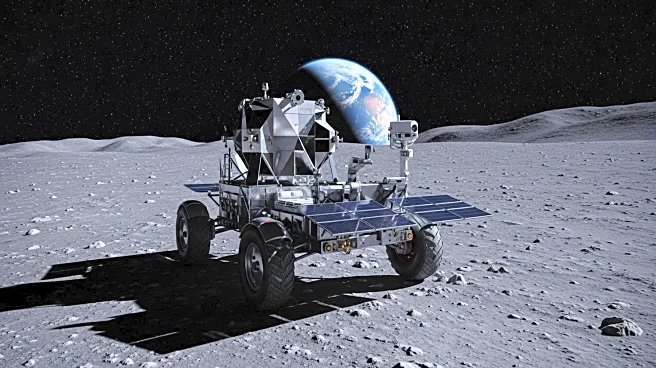What's Happening?
A Senate Commerce Committee hearing highlighted concerns over the U.S.-China space race, focusing on NASA's Artemis program and the potential risk of losing lunar dominance to China. Experts testified on the importance of maintaining U.S. leadership in space exploration, emphasizing the need for consistent funding and commitment to the Artemis program. The hearing underscored China's advancements in lunar mission technologies and the strategic implications of establishing a presence on the Moon.
Why It's Important?
The outcome of the lunar race could have significant geopolitical and economic implications, affecting international policies and alliances. U.S. leadership in space is crucial for setting global standards and maintaining technological superiority. The Artemis program is seen as an economic engine, with potential benefits for the U.S. economy and industry. Ensuring continued investment and progress in space exploration is vital for national security and global influence.
What's Next?
The Senate will continue to evaluate NASA's budget priorities, balancing exploration goals with scientific missions. The Artemis program's success depends on securing funding and overcoming technical challenges, including the development of a lunar lander. NASA will need to reaffirm its commitment to international partnerships and the Gateway space station to sustain momentum in lunar exploration.
Beyond the Headlines
The hearing highlighted the need for a unified national strategy in space, integrating civil, commercial, and defense efforts. Establishing a presence on the Moon could shape future space governance and resource allocation, influencing global economic and political dynamics. The U.S. must address internal challenges and foster collaboration to maintain its competitive edge in space.









